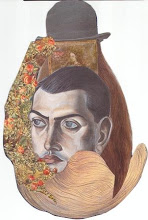Norman Lock’s American Meteor is a brief and engaging meditation on American identity. Its hero is petty, violent, gullible, and impulsive. But he also shows sparks of empathy and is capable of learning. He makes for a trustworthy narrator and Lock presents his flaws as facets of a uniquely American personality.
The story operates by means of historical signposts. The main character begins the story in the lower Manhattan slums of the 1850s where he meets Walt Whitman. From there he fights in the Civil War, works with famous men, and is present at great occasions like the meeting of the Transcontinental Rail Road and the Battle of Little Big Horn.
The meeting with Whitman early in the novel sets the stylistic tone for American Meteor. The main character, Steven Moran carries a copy of Leaves of Grass with him through his various stages of life and quotes from it consistently. Whitman’s giddy acceptance of and reveling in human frailty is at the heart of American Meteor’s perspective on the American experience. Steven Moran is swept up by events even as he lives the consequences of his mistakes. This mixture of free will and fatalism coincides again with Whitman who praises both the immensity of time and space and the agency of man.
In approximately 200 pages or so Norman Lock provides us a panoramic view of a life lived on the margins of the great events of the American late-19th century. Its value as entertainment lies in the scenes and events it portrays. Though the depth and detail it provides for these events arrives from the continuos interior rumination of Steven Moran. The story is framed as a prolonged reminiscence being told by Moran to a fellow character and it is his digressions, comments and considerations, apart from the main action of the story, that lend the book its poetry and weight.
There is little criticism one can level at it that is not mitigated either by its brevity or the overall satisfaction it provides the reader in seeing the American past through the eyes of a believable and believably flawed narrator.


No comments:
Post a Comment